Research Programs
Chemical Engineering at the University of Tennessee Chattanooga
We are a premier program in applied research, teaching, research training and experiential learning. Our undergraduate and graduate programs incorporate a synergistic blend of traditional chemical engineering areas such as control systems, thermodynamics, reactors and separations with modern innovations in the field such as nanotechnology, bioengineering, sustainability and environment.
Our programs offer significant opportunities for multidisciplinary approaches to engineering thinking through research training and industrial problem-solving to bridge the gap between university training and industrial demands. Our graduates are equipped with the needed capabilities to contribute through innovation to address emerging problems facing the world today. We are the research nexus for local industry, businesses and the community. We are proud to have a highly dynamic graduate program that opens the possibilities of research and innovation for each student.
Our research captures emerging areas of innovation in chemical engineering: materials innovation, nanotechnology, energy harvesting, bioengineering for biofuels and commodity chemicals production, sustainable processing, environmental remediation, biopharmaceutical development, targeted delivery and biosensing.
QUICK JUMP LINKS
"We are not only focused on traditional chemical engineering but w also incorporate new areas of chemical engineering through research and research training to solve emerging problems."
Areas of Research
The Chemical Engineering program at UTC is the hub for a broad spectrum of fundamental and applied research. We are not only focused on traditional chemical engineering but we also incorporate new areas of chemical engineering through research and research training to solve emerging problems.
Traditional Research
- Reactors
- Thermodynamics
- Control Systems
- Separation
Emerging/New Areas of Research
- Nanotechnology
- Energy Harvesting
- Biopharmaceuticals
- Bioreactors
- Storm Water
- Sustainability
Nanotechnology and Materials Innovation
- Synthesis of inorganic, biohybrid and magnetic nanostructures
- Soft materials and hydrogels
- Integrated experimental and computational approach to understand the flow of nanodrugs
- Multimodal material characterization using dynamic light scattering, electron microscopy, spectroscopy and hyperspectral imaging
- Nanostructures and thin films for solar cell
- Flexible supercapacitors
- Green infrastructure for stormwater
- Nanoparticle fertilizers for sustainable agriculture
Bioengineering
- Deciphering bacterial disease pathogenesis via genetics, proteomics, bioinformatics
- Understanding bacterial membrane function and adaptations through molecular modeling
- Constructing microbial cell factories using metabolic modeling and synthetic biology
Sustainable Energy
- Transparent Aerogel
- Graphene
- Heat and mass transfer modeling via Python
- Optical, thermal, adsorption and mechanical properties characterization
- Solar thermal energy conversion
- Energy-efficient building windows
- High-energy density batteries
- Water harvesting from air
Environmental
- Environmental bioremediation – CO2 biosequestration and wastewater treatment
- Metabolic engineering of cellular pathways for the production of fine chemicals
- Microbial synthesis of biofuels and bioproducts via consolidated bioprocessing.
- Bioconversion of liquid and solid wastes into useful products
- Sustainability evaluation via life cycle analysis
Biomedical and Biomolecular Engineering
- Affinity ligand design and characterization via computational and experimental approaches for biomedical applications
- Nucleic acid and protein based therapeutic production and analysis
- Drug and vaccine formulation and targeted delivery via biodegradable microparticles and nanoparticles
- Bioseparation adsorbent design and functionalization for downstream processing and biomolecule purification
- Bioactive peptide production and formulation from food protein hydrolysates – Application in functional foods
| Area | Description | Hours |
| Graduate Seminar | 1 | |
| Area I | Mathematics Component | 3 |
| Area II | Approved Electives in Mathematics, Science or Engineering | 3-6 |
| Area III | Engineering Concentration | 12 |
| Area IV | Thesis or Special Project and/or Internship | 12 |
Area I: Mathematics Component (3 hours)
Any 5000–level Math courses (3 hours)
Area II: Approved Electives* (3-6 hours)
ENCH 5910 – Special Topics (3 hours)
CPSC 5410 – Model Analysis and Simulation (3 hours)
Or
CPSC 5000 – Fundamentals of Computer Science (3 hours)
Or
CPSC 5400 – Topics in Simulation (3 hours)
ENGM 5580 – Advanced Engineering Economy (3 hours)
ENCE 5260 – Water and Wastewater Treatment Systems (3 hours)
Additional information and notes: * With approval of the graduate advisor, students can take an equivalent course in this area.
Area III: Approved Engineering (12 hours)
ENME 5320 – Advanced Thermodynamics (4 hours)
ENME 5340 – Transport Phenomena (4 hours)
ENGR 5360 – Mass Transfer Operations (4 hours)
Area IV: Thesis/Project (12 hours)
Thesis option:
Two or more semesters of ENCH 5999 – Thesis (12 hours total)
Or
Project + Additional Special Topics Course, Internship, Coursework:
ENCH 5900 – Project (3 hours)
ENCH 5920R – Graduate Internship in Engineering (1 hour)
ENCH 5910 – Special Topics (1-9 hours)
Program Total:
31 hours (Thesis), 34 hours (Project + Coursework)

Research Equipment
The Chemical Engineering research facilities are housed on the first and second floors of the Engineering, Math and Computer Science building. One of our key strengths is our broad spectrum of research capabilities. Some of our major research equipment is listed below. We continually grow in research capabilities.
- Schlenk line
- Scanning electron microscope
- Dynamic Light Scattering with Zeta Potential
- Fourier transform infrared spectroscope
- Ultraviolet-visible spectroscope
- Fluorescence spectroscope
- Spin coater
- Microcentrifuge
- Optical microscope
- Biocore X100 surface plasmon resonance system
- Thermo Scientific 1300 Series Class II, Type A2 biological safety cabinet
- Yamato SQ810C mobile autoclave
- New Brunswick BioFlo3000 bioreactor
- Biotek ELx800UV absorbance microplate reader
- Mettler Toledo XS104 analytical balance
- Millipore Sigma MilliQ Direct16 water purification system
- Glove box (Inert gas filled)
- Environmental vacuum control chamber
- Solar simulator
- Chemical vapor deposition
- Critical point dryer
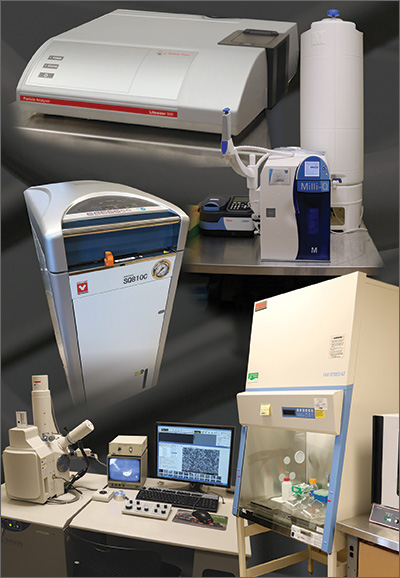
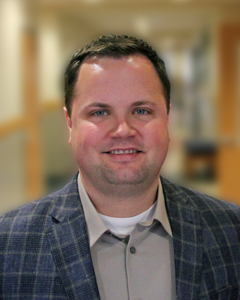
Dr. Bradley Harris
Assistant Professor
Email: [email protected]
Research Areas:
- Identifying common pathways and mechanisms in bacterial disease pathogenesis
- Understanding how bacteria adapt to their environment through membrane remodeling
- Developing prevention and treatment strategies for bacterial diseases
- Using synthetic biology to build microbial cell factories
- Constructing renewable routes to energy and commodity chemicals
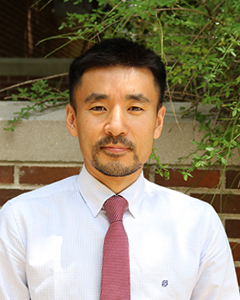
Dr. Sungwoo Yang
Assistant Professor
Graduate coordinator
Email: [email protected]
Research Areas:
- Transparent insulating materials
- Lightweight thermal and electrical additives
- Modeling heat and mass transfer
- Solar thermal energy conversion
- Energy-efficient building
- Water harvesting
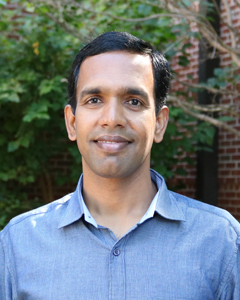
Research Areas:
- Non-point source urban water quality
- Emerging contaminants characterization and treatability
- Bioretention for urban contaminant treatment
- Watershed water quality simulation
- Sustainable urban water resources and green infrastructure
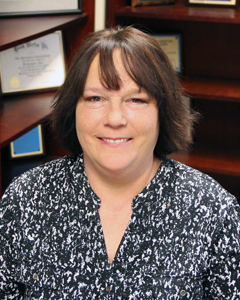
Karen Lomen
Administrative Assistant
Office: EMCS 435
Phone: (423) 425-4020
Email: [email protected]
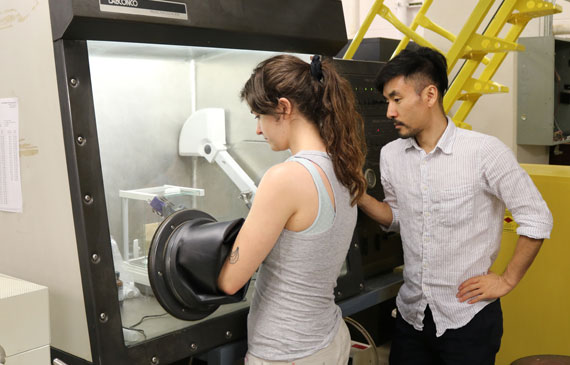
Funded Research
- Investigating the flow of nanodrugs through bio-inspired hydrogel channels. UTC CEACSE, ($100,000). PI – Dr. Palchoudhury
- Aptameric targeting of CD19 B-lymphocyte transmembrane receptor via molecular dynamics simulations for acute lymphoblastic leukemia therapy. UTC-Erlanger Collaborative Grant ($25,000). PI – Dr. Danquah
- The impact of membrane phospholipid remodeling on pathogen survival and persistence. UTC CEACSE ($93,000). PI – Dr. Harris
- Water harvesting from air powered by natural sunlight. Funded by UTC CEACSE, ($100,000). PI – Dr. Yang
- Three-Dimensional Modeling of River Flows Under Extreme Weather Scenarios. Funding Agency: U.S. Geological Survey, through Tennessee Water Resources Center, Total Budget: $60,000 ($20,000 external (USGS) + $40,000 (internal, UTC match)), PI – Dr. Bathi, Funding Period: 06/18 – 05/2019
- Modeling Fate and Transport of Engineered Nanomaterial in Surface Waters. Funding Agency: Tennessee Higher Education Commission Center for Excellence, Total Budget: $96,217, PI – Dr. Bathi, Funding Period: 07/18 – 06/2019
- Integration of Satellite Observations with Numerical Watershed and Hydrodynamic Models for Surface Water Quality Studies. Funding Agency: Tennessee Higher Education Commission Center for Excellence, Total Budget: $96,204, Co-PI – Dr. Bathi, Funding Period: 07/19 – 06/2020
- Simulating Bio-Environmnetal Interactions Using Omics Approaches. Tennessee Higher Education Commission Center for Excellence, Total Budget: $100,000, Co-PI – Dr. Bathi, Funding Period: 07/19 – 06/2020
- REU Site: ICompBio - Engaging Undergraduates in Interdisciplinary Computing for Biological Research. NSF, ($359,971). Co-PI – Dr. Palchoudhury
Key Publications
- Palchoudhury, S.; Arabshahi, A.; Gharge, U.; Albattah, A.; George, O.; Foster, Y., Integrated experimental and computational approach for nanoparticle flow analysis. Physics Letters A 2019, 383 (14), 1615-1621.
- Palchoudhury, S.; Jungjohann, K.; Weerasena, L.; Arabshahi, A.; Gharge, U.; Albattah, A.; Miller, J.; Patel, K.; Holler, R., Enhanced legume root growth with pre-soaking in -Fe2O3 nanoparticle fertilizer. RSC Advances 2018, 8 (43), 24075-24083.
- Tan K. X, Lau S. Y, Pan S, Danquah M. K. Binding characterization of aptamer-drug layered microformulations and in vitro release assessment. Journal of Pharmaceutical Science (2019) (In press)
- Tan, K. X., Pan, S., Jeevanandam, J., Danquah, M. K. Cardiovascular therapies utilizing targeted delivery of nanomedicines and aptamers. International Journal of Pharmaceutics. 558 (2019) 413-425.
- Jun, L. Y., Yon, L. S., Mubarak, N. M., Bing, C. H., Pan, S., Danquah, M. K., & Khalid, M. An overview of immobilized enzyme technologies for dye and phenolic removal from wastewater. Journal of Environmental Chemical Engineering 7(2) (2019) 102961.
- Tan K. X, Ujan S, Danquah M. K, Lau S. Y. Design and Characterization of a Multi-Layered Polymeric Drug Delivery Vehicle. Canadian Journal of Chemical Engineering. In press (2018). doi.org/10.1002/cjce.23389.
n Jeevanandam, J., Pal, K., Danquah, M. K. Virus-like nanoparticles as a novel delivery tool in gene therapy. Biochimie. 152 (2018) 38-47. - Chiong, T., Lau, S. Y., Zeng, X., Danquah, M. K. (2019). Synthesis of peroxidase-encapsulated sodium cellulose sulphate/poly-dimethyl-diallyl-ammonium chloride biopolymer via polyelectrolyte complexation for enhanced removal of phenol. Asia-Pacific Journal of Chemical Engineering. In press
- Phuan S. L, Danquah M. K, Acquah C, Lau S. Y (2019). Sustainable Palm Oil Refining using Pelletized and Surface-modified Oil Palm Ash Bio-adsorbent. Journal of Cleaner Production (In press)
- H Kim, S Yang, SR Rao, S Narayanan, EA Kapustin, H Furukawa, Water harvesting from air with metal-organic frameworks powered by natural sunlight, Science 356, 6336, 430-434 (2017)
- H Kim, SR Rao, EA Kapustin, L Zhao, S Yang, OM Yaghi, EN Wang, Adsorption-based atmospheric water harvesting device for arid climates, Nature communications 9 (1), 1191
- Yang, S., Huang, X., Chen, G. et al., Three-dimensional graphene enhanced heat conduction of porous crystals, J Porous Mater (2016)
- LA Weinstein, K McEnaney, E Strobach, S Yang, B Bhatia, L Zhao, A hybrid electric and thermal solar receiver, Joule 2 (5), 962-975